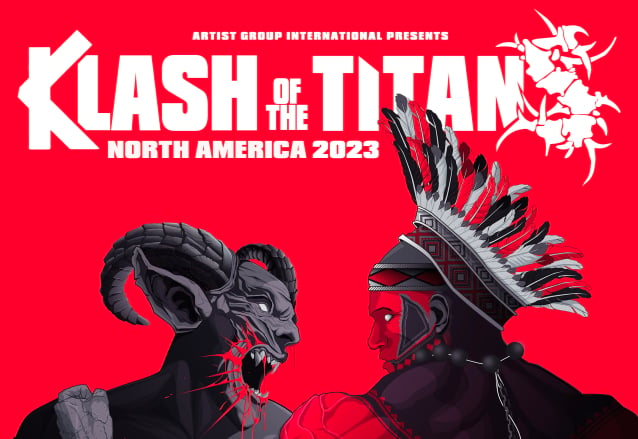Time for US to rethink role in global trade
Written by on January 16, 2023
On Dec 14 and 16, the World Trade Organization conducted a review of the trade policy of the United States in Geneva. This was the fifteenth review of the US policy under the General Agreement on Tariffs and Trade and WTO multilateral trading system since the introduction of the Trade Policy Review Mechanism (TPRM) into GATT in 1989.
The previous review of the US trade policy was conducted in 2018. At that time, the Trump administration was in power, and the US was bellicose on the trade front. In its policy statement to the WTO, it proclaimed that “the US is committed to reforming the global trading system in ways that lead to fairer outcomes for US workers and businesses, and more efficient markets for countries around the world”, and continued that “US trade policy is driven by a pragmatic determination to use the leverage available to the world”s largest economy to secure these objectives”, a typical US tone which was not well received by other WTO members during the review process.
Now, several years later, the Biden administration is in power. In the face of a turbulent international political situation, grim global economic situation and battered multilateral trading system, what will the US, as the most important member of the WTO, say this time? What will other members say about the country?
As a routine practice, the US submitted its policy statement report in advance of the TPRM meeting. It is said that the overall tone in this report was much more low-key compared with the one in 2018. It emphasized the important role of the WTO, was in line with the Biden administration’s return to a multilateral system, had much less explicit criticism of China by name, and included no proclamation for further US market opening. In the statement, the US asserted, “We remain committed to upholding a fair and open global trading system — one that follows through on our partners’ long-standing commitment to conduct economic relations with a view to raising standards of living, ensuring full employment and promoting sustainable development.” To achieve this, it is necessary to “identify and rethink aspects of the existing trading system that incentivize or enable unfair competition”, because “too often our existing global trade rules have rewarded advantages that are not based on fair competition”.
However, the US’ deliberate low-key statement cannot hide and dismiss the problems existing in its current trade policy, nor can it avoid the questions and accusations of other members. While the US avoids mentioning areas for improvement in its trade policy in its statement, other WTO members will not limit themselves to listening to US “self-praise”.
Instead, their attention has focused on some discriminatory trade practices with significant global implications taken by the US, of which the most controversial is the Inflation Reduction Act. The IRA addresses broad areas such as combating climate change, reducing prescription drug costs and reducing fiscal deficits. But what concerns WTO members most is that the act authorizes the US government to provide about $369 billion for climate and clean energy projects, including encouraging the purchase of electric vehicles and hydrogen fuel cell-powered vehicles and deploying charging stations, with as many as nine tax incentive programs conditional on production and sale in the US or North America. In the name of addressing climate change, those incentive programs differentiate foreign products based on their origins, and use domestic products as a preferential condition, which constitute a blatant violation of the basic principles of its most favored nation status and national treatment in terms of WTO rules. It is a deep betrayal to the appeal that “trade and environmental policies should be mutually supportive in line with WTO rules, and serve the sustainable development goals” of the G20 Bali Summit Declaration. Therefore, the IRA has been strongly castigated by other WTO members since its introduction, and the European Union has already threatened to take countermeasures and file a lawsuit against the US at the WTO.
In addition to the temporary disruption of supply chains caused by the COVID-19 pandemic, international trade and the global economy have been frequently confronted with US-made trade distortions and supply disruptions in recent years, especially so-called “decoupling “measures against China. To illustrate two recent examples: the US Chip and Science Act subsidizes domestic enterprises and covertly restricts chip companies’ advanced technology investments in China; and the US Department of Commerce utilized export control measures in an unprecedented and abusive manner to restrict a great deal of global trade and technical connections with China in areas of advanced semiconductors, supercomputers and related technologies. These measures are unreasonable and unjustifiable in many aspects and, according to WTO rules, fundamentally violate the principles of nondiscrimination, unilaterally disrupt the stability of global semiconductor supply chains, offer US companies unfair competitive advantages, undermine the predictability of the global trade system and seriously damage the legitimate interests of enterprises in many countries.
To a certain extent, the introduction of the IRA and the “CHIPS and Science Act 2022” and semiconductor export controls in 2022 can be regarded as the commencement of a US “industrial policy” and “industrial subsidy” era, and the transformation of the US into a “non-market economy”, a label that the US uses to describe other members. This also exemplifies the double standards implemented by the US on many international economic and trade issues under the banner of addressing climate change, promoting fair competition, maintaining supply chain stability and safeguarding security interests. The G20 Bali Summit Declaration stated: “We are committed to reinforcing international trade and investment cooperation to address supply chain issues and avoid trade disruptions. We believe that trade, climate and environmental policies should be mutually supportive and WTO-consistent and contribute to the objectives of sustainable development. We also recognize the importance of inclusive international cooperation on digital trade.” Before the ink of this declaration is dry, these demands seem to have been forgotten by the US.
For these reasons, China’s Ambassador to the WTO Li Chenggang pointed out at the US trade policy review meeting that “since the last review, not only have some practices of the US not been corrected, but they have gone further”, and what we see is “a destroyer of the multilateral trading system, a unilateralist and bullying hegemonic power, a double standards manipulator and a disturber of the global supply chain”.These titles are appropriate since the US has “earned” them with its strength and actions.
No matter how well its governmental statement is written, the US trade policy review examines US policy, discusses US issues and requests corrections to US measures. The US needs to put aside the mentality of overweening pride and listen carefully to the concerns of other WTO members because the US measures not only cause trade disruptions and market turmoil, but also fundamentally damage the stability and authority of the multilateral trading system in which all members have common interests.
It is time for the US to seriously rethink its role in the multilateral trading system. Only by implementing the spirit of the G20 Summit in Bali, Indonesia, and the essence of the WTO rules can the US regain the recognition and respect of the international community.
The views don’t necessarily reflect those of China Daily.
The writer is a professor at the Law School of the University of International Business and Economics and an executive member of the WTO Law Research Society at Beijing-based China Law Society.
watch avatar the way of water full movie
watch avatar the way of water full movie
watch avatar the way of water full movie






